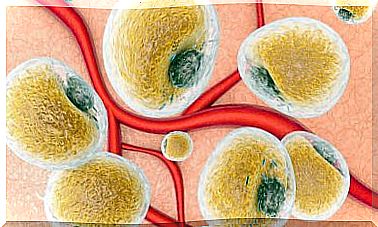Avoidant Attachment And Its Influence On Emotional Health
Avoidant attachment can cause the affected person to create patterns of anxiety, avoidance, and other attitudes that help them feel protected from anticipated deficiencies.

Many researchers have developed the concept of attachment from the psychological aspect. This is where avoidant attachment comes into play.
Attachment is specifically associated with the emotional bond that human beings form from childhood with their parents or people around them.
There are different types of attachment and each one depends on the lifestyle, teachings and experiences that the person obtained during their childhood.
Based on this, secure and insecure attachment are defined. Within the latter we find the ambivalent and the avoidant.
What is avoidant attachment?

Secure attachment is what most of the population develops as something normal. The child has been raised under a stable emotional environment and with full attention from the mother.
This allows you to create feelings of appreciation and caring that make you feel confident, loved, and self-reliant as you grow older.
On the other hand, with respect to ambivalent and avoidant attachment, they are generated by the lack of sufficient attention in childhood, rejection attitudes or even if the parents showed too much overprotection.
This leads the person to create patterns of anxiety, insecurity, dissatisfaction, avoidance and other attitudes that make them feel protected against those anticipated deficiencies.
Effects of avoidant attachment

Ultimately these patterns end up affecting their lives in the long run. When they reach adulthood they begin to have problems relating to others and have difficulties expressing their feelings.
In fact, in many cases they do not even know what they feel and cannot identify them.
- They become lonely people, creating themselves a fictitious independence.
- They can be indifferent to certain situations, since they do not know how to deal with what they feel.
- Those who come to establish a relationship, in general, always suffer from anxiety when they feel that they will lose the love of their life at any moment.
- They remain alert to a possible threat to the relationship or to themselves, a product of the insecurity they develop.
They do not express their feelings as they feel that they can be protected from any suffering.
Did you know that we all have an attachment?

In some way or another we all generate attachment from a very young age and it is normal. The human being develops attachment as something natural and necessary in order to know himself and learn to create independence.
When a person is raised in an environment with love and protection, especially on the part of the mother, this can generate that feeling of trust.
This way you will grow up feeling safe and independent in the face of what life throws at you.
This way you will be able to identify each feeling, when and how to use them according to the different situations that you will face in the future.
Is it possible to treat avoidant attachment?
Fortunately, yes. There are many therapies that manage to channel the affective deficiencies and feelings in this type of people through relaxing techniques or where a welcoming environment is created that allows them to connect their minds with their disturbing past.
Among these therapies is the “cognitive behavioral”, considered one of the best.
- Through this, it is intended to change the person’s thinking, release their anxieties and bad memories.
- This way you can gradually transform your behavior and recognize your true feelings.
Likewise, there are other therapies connected more towards the interpersonal and spiritual.
- The sessions consist of bringing the person into a state of total relaxation.
- They must learn to identify their feelings and find out their origin.
- They also have to accept their negative experiences in order to ease them and move forward.
Going to therapy may not work for everyone. The disposition that the person has in wanting to improve and that he is aware that he has a problem will always depend.







